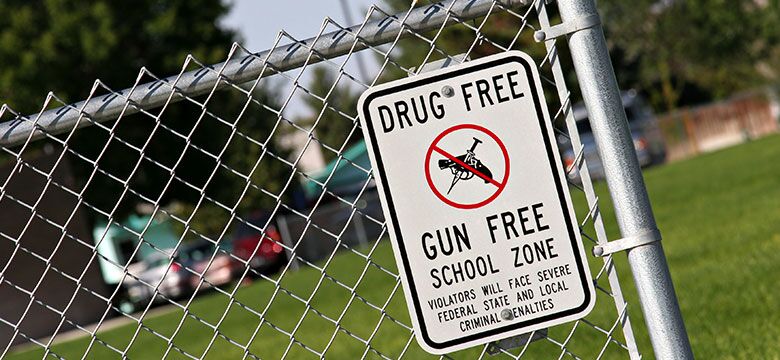Nearly twenty schools in the San Diego area have received threats since the February 14 shooting at Marjory Stoneman Douglas High School in Parkland, Florida. The police are thoroughly investigating each case, and the San Diego County District Attorney’s Office has charged nine juveniles so far with making school threats, even though none of the threats have been found to be credible.
Threatening a school is a serious crime. If you’re being accused of making threats against an educational institution, call a San Diego harassment lawyer from McElfresh Law at (858) 756-7107 to schedule a free and confidential case consultation today.
Which San Diego High Schools Have Received Threats?
According to District Attorney Summer Stephan, “this is the largest chunk of cases issued in such a short period that I can ever remember.” So far, school threats have been made against:
- Torrey Pines High School
- La Jolla High School
- Olympian High School
- Julian High School
- San Marcos High School
- Rancho Bernardo High School
- Vista High School
- Ramona High School
- West Hills High School
- San Diego High School
- Steele Canyon High School
- Canyon Crest Academy
- Madison High School
- High Tech High Media Arts in San Diego
- STEAM Academy
- Rincon Middle School
- San Diego School of Creative and Performing Arts
- Innovation Middle School in San Diego
In 2014, the district attorney at the time created a special unit to investigate threats against schools and to prosecute the suspected perpetrators. The team is working to develop a profile of the kind of person who makes threats against schools, and to differentiate between those who intend to carry out the threats and those who don’t.
Making Criminal Threats May be Charged as a Felony
Most of the threats against schools are made by people with no intention of harming anyone. Rather, the threats are meant as a prank or as a means of seeking attention. But the credibility of the threat has no bearing on whether it’s a crime. California Penal Code Section 422 outlines criminal threats as:
- Any threat to kill or to physically harm another person
- Threats that make a person fearful for their safety or for the safety of their immediate family
- Threats that are clear and specific
- A threat made with the intent to cause fear
- Threats communicated verbally, in writing, or electronically
The law encompasses a wide range of threats. Importantly, the prosecutor does not need to prove that the defendant had the ability or intention to carry out the threat. Depending on the circumstances of the case, a prosecutor may decide to charge the crime as either a felony or a misdemeanor.
A conviction for misdemeanor criminal threats will result in up to one year in jail and possible fines of up to $1,000. The felony version of the crime, on the other hand, carries the possibility of up to three years in state prison and $10,000 in fines. For juvenile offenders, such as those who allegedly committed the recent threats against San Diego’s high schools, the penalties include detention, restrictions on access to social media, and informal probation. In more serious cases, a judge may require the juvenile offender to receive mental health treatment.
Have You Been Accused of Making School Threats? Call Us Today for Help
Many people may not be aware of these harsh penalties of making school threats, or even of the fact that making these threats is a crime. If you have been charged with making criminal threats, the prosecutor must prove every element of the crime beyond a reasonable doubt. An experienced criminal defense attorney from McElfresh Law may be able to show that you did not intend to cause fear, or that your threat was too vague to be criminal.
To learn more about the defenses to making criminal threats, contact us today at (858) 756-7107 to schedule a case evaluation.
